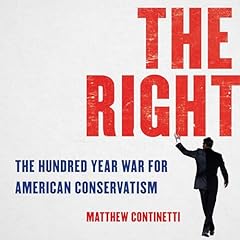
Law and Leviathan
Redeeming the Administrative State
No se pudo agregar al carrito
Add to Cart failed.
Error al Agregar a Lista de Deseos.
Error al eliminar de la lista de deseos.
Error al añadir a tu biblioteca
Error al seguir el podcast
Error al dejar de seguir el podcast
 Exclusivo para miembros Prime: ¿Nuevo en Audible? Obtén 2 audiolibros gratis con tu prueba.
Exclusivo para miembros Prime: ¿Nuevo en Audible? Obtén 2 audiolibros gratis con tu prueba.Compra ahora por $14.66
-
Narrado por:
-
Mike Chamberlain
Is the modern administrative state illegitimate? Unconstitutional? Unaccountable? Dangerous? Intolerable? American public law has long been riven by a persistent, serious conflict, a kind of low-grade cold war, over these questions.
Cass Sunstein and Adrian Vermeule argue that the administrative state can be redeemed, as long as public officials are constrained by what they call the morality of administrative law. Law and Leviathan elaborates a number of principles that underlie this moral regime. Officials who respect that morality never fail to make rules in the first place. They ensure transparency so that people are made aware of the rules with which they must comply. They never abuse retroactivity, so that people can rely on current rules, which are not under constant threat of change. They make rules that are understandable and avoid issuing rules that contradict each other.
These principles may seem simple, but they have a great deal of power. Already, without explicit enunciation, they limit the activities of administrative agencies every day. But we can aspire for better. In more robust form, these principles could address many of the concerns that have critics of the administrative state mourning what they see as the demise of the rule of law.
©2020 Cass R. Sunstein and Adrian Vermeule (P)2020 TantorLos oyentes también disfrutaron:




















Las personas que vieron esto también vieron:



Tmely contributio to the theory of the rule of law
Se ha producido un error. Vuelve a intentarlo dentro de unos minutos.
Law and Leviathan is a dense book, with concepts that, for myself at least, will require multiple readings. I am not a lawyer. I am not in any way educated on law, outside of what I might have gleaned from conversations and articles here and there, and whatever I need to know to do my job (as a journalist).
The chief criticism (which may itself be a result of my lack of experience), is the paucity of examples. Repeatedly, the authors refer to ways in which one of the two main deferences referenced (Auer and Chevron) or another legal principle need not be interpreted in X way, and mention how it could be naturally interpreted in some other manner.
I was repeatedly stuck wondering what they could possibly be referring to, and assuming that some professional in their field would naturally know... but I did not.
Could I be a victim of trying to read a document not written for myself? Certainly. But perhaps my criticism helps the authors, for whom I have respect.
A secondary criticism of mine, stemming possibly again from ignorance, is that one of the chief criticisms of the Neo-Classical interpretation (which itself I had only a non-legal comprehension and of which no deeper explanation was given) was that it offered no solid avenue forward for the law, even if it were a solid theory. I had no idea what to make of this. I don't even know what that means. Perhaps if I ever interact with Dr. Vermuele again online I'll have to ask him, but as I see it, if it is a solid theory, it would naturally offer an avenue forward. And what's more, should we even continue to support a legal framework that drifted away from a solid moral theory? It seemed to me, that the whole thesis of the book, though reluctant to frame itself in such blatant terms, was that the internal morality of law offered sufficient grounds to counter the criticisms levied against the administrative state as established under the APA--that that morality was both binding on the operation of law, and could independently justify (to a certain degree) anything that adhered to it.
As another aside, due to the sheer number of unfamiliar terms and the fact that some of them are homophones (Auer specifically), it was rather difficult to digest this book than perhaps it might have been outside of an audiobook format.
Despite my criticisms, don't let that prevent you from enjoying this work. I certainly enjoyed it overall.
This Might Not Be For Me, But Here's What I Think
Se ha producido un error. Vuelve a intentarlo dentro de unos minutos.
A Fairly Stong, but Succinct Defense of Agencies
Se ha producido un error. Vuelve a intentarlo dentro de unos minutos.


